On December 10…
“I’m tired, boss. Tired of being on the road, lonely as a sparrow in the rain. I’m tired of never having me a buddy to be with, to tell me where we’s going to, coming from, or why. Mostly, I’m tired of people being ugly to each other. I’m tired of all the pain I feel and hear in the world… every day. There’s too much of it.”
~ Michael Clarke Duncan as John Coffey
The Green Mile
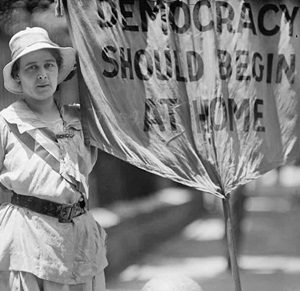
1869 – Motivated perhaps more by interest in free publicity than a commitment to gender equality, Wyoming territorial legislators passed a bill that was signed into law granting women the right to vote.
Western states led the nation in approving women’s suffrage, but some of them had rather unsavory motives. Though some men recognized the important role women played in frontier settlement, others voted for women’s suffrage only to bolster the strength of conservative voting blocks.
In Wyoming, some men were also motivated by sheer loneliness. The territory had over 6,000 adult males and only 1,000 females, and men hoped women would be more likely to settle in the rugged and isolated country if they were granted the right to vote.
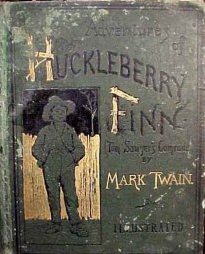
1884 – Mark Twain’s Adventures of Huckleberry Finn was published in Canada and the UK. It was published in the U.S. on February 18, 1885.
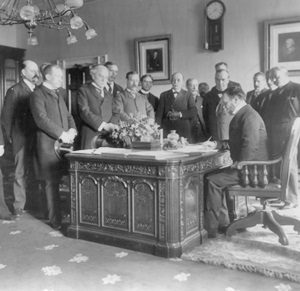
1898 – The Treaty of Paris was signed, bringing an end to the Spanish-American War. The Treaty went into effect on April 11, 1899, when the documents of ratification were exchanged.
In accordance with the treaty, Spain:
1/ Gave up all rights to Cuba.
2/ Surrendered Puerto Rico and gave up its possessions in the West Indies.
3/ Surrendered the island of Guam to the United States.
4/ Surrendered the Philippines to the United States for a payment of twenty million dollars.
Many supporters of the war opposed the treaty, and it became one of the major issues in the election of 1900 when it was opposed by Democrat William Jennings Bryan because he opposed imperialism. Republican President William McKinley upheld the treaty and was easily reelected.
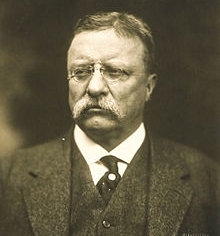
1906 – U.S. President Theodore Roosevelt won the Nobel Peace Prize for his role in the mediation of the Russo-Japanese War, becoming the first American to win a Nobel Prize.

1935 – King Edward VIII signed the instruments of abdication, choosing to give up the British throne so that he might marry Wallis Simpson, an American who had divorced her first husband and was seeking a divorce from her second.
The next night, Edward explained his decision to abdicate in a worldwide radio broadcast. He famously said, “I have found it impossible to carry the heavy burden of responsibility and to discharge my duties as king as I would wish to do without the help and support of the woman I love.”
His brother, Prince Albert, Duke of York, succeeded to the throne as George VI. George VI’s elder daughter, Princess Elizabeth, became first in the line of succession.
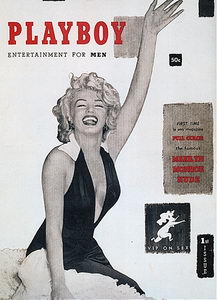
1953 – With an investment of $7,600, Hugh Hefner published the first Playboy magazine.
There was no date printed on the first issue – now a collector’s item. The reason for no date, according to Hefner, was he doubted anyone would expect a second issue to be printed.
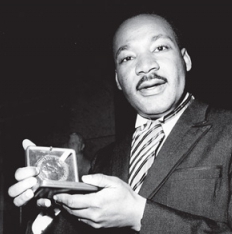
1964 – Dr. Martin Luther King, Jr. won the Nobel Peace Prize for being “first person in the Western world to have shown us that a struggle can be waged without violence.”
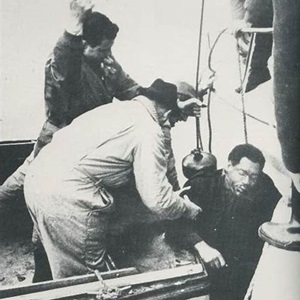
1967 – Singer/songwriter Otis Redding died in a plane crash near Madison, Wisconsin. He was 26.
Redding and his backing band, the Bar-Kays, were travelling to perform at the Factory Nightclub when their plane – flying in heavy rain and fog – crashed into Lake Monona.
The other victims of the crash were four members of the Bar-Kays – guitarist Jimmy King, tenor saxophonist Phalon Jones, organist Ronnie Caldwell, and drummer Carl Cunningham; their valet, Matthew Kelly; and the pilot, Richard Fraser.
(Sittin’ On) The Dock of the Bay, a song Redding had recorded just three days before his death, would become a posthumous #1 hit – the first posthumous #1 single in U.S. chart history.
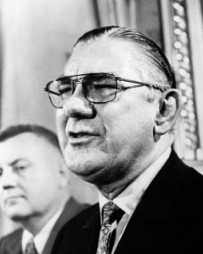
1974 – Representative Wilbur D. Mills (D-Arkansas) resigned as chairman of the Ways and Means Committee in the aftermath of the first truly public sex scandal in American politics.
On October 7, Mills had been stopped by Washington park police while driving at night (2 a.m.) with his lights off. The 65-year-old congressman was visibly intoxicated, his face was scratched, and his companion, 38-year-old Annabelle Battistella, had bruised eyes.
Battistella then proceeded to jump into the Tidal Basin near the Jefferson Memorial and had to be pulled out by the police. She was later identified as a popular stripper who went by the names “Fanne Foxe” and the “Argentine Firecracker.”
Mills denied all the allegations but later admitted he had joined a party Battistella was present at after “a few refreshments.” Mills was subsequently reelected to Congress, but because of the escalating scandal, he was forced to retire his chairmanship and later announced that he would not run for reelection in 1976.

1980 – Rep. John W. Jenrette (D-S.C.) resigned to avoid being expelled from the House following his conviction on charges related to the FBI’s Abscam investigation.
Jenrette was sentenced to two years in prison, of which he served 13 months.
Jenrette is also famous for another action during his days as a Congressman. He allegedly had sex with his then-wife Rita behind a pillar on the steps of the Capitol Building during a break in a late night session of Congress.
The musical-satire group The Capitol Steps took their name from this escapade.

1994 – Yasser Arafat, Shimon Peres and Yitzhak Rabin won the Nobel Peace Prize.
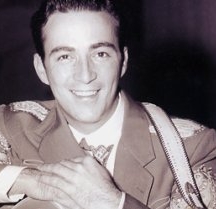
1994 – Country singer Faron Young (Hello Walls, Four In The Morning) died of a self-inflicted gunshot wound. He was 64.
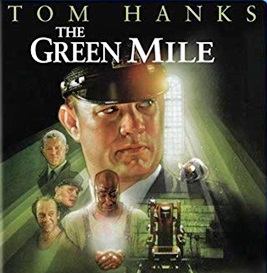
1999 – The Green Mile, starring Tom Hanks and Michael Clarke Duncan, premiered in U.S. theaters.
Duncan, who played the role of John Coffey, a giant black man wrongfully convicted of raping and killing two young white girls, received an Academy Award nomination as Best Supporting Actor.

1999 – Babe Ruth was voted Major League Baseball’s Player of The Century by the Associated Press. Willie Mays was second, with Hank Aaron third.
Ted Williams, Ty Cobb, Joe DiMaggio, Walter Johnson, Lou Gehrig, Jackie Robinson, and Honus Wagner rounded out the top ten.
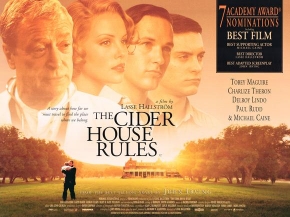
1999 – The Cider House Rules, starring Tobey Maguire and Michael Caine, premiered.
Caine would win the Academy Award for Best Supporting Actor.

1999 – Rick Danko (bass guitar/vocalist with The Band (This Wheel’s On Fire, The Night They Drove Old Dixie Down, The Weight) died of heart failure at the age of 55.
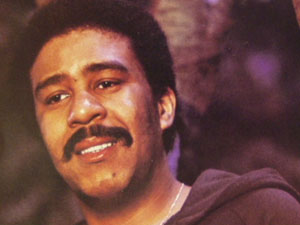
2005 – Comedian Richard Pryor died of heart failure at the age of 65. The comic legend had battled multiple sclerosis since 1986.
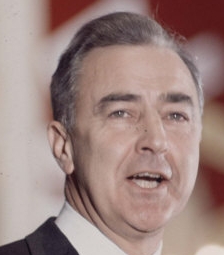
2005 – Eugene McCarthy died at the age of 89.
The former Senator from Minnesota burst onto the national political stage in 1968 when he ran for the Democratic presidential nomination.
His showing in the New Hampshire primary prompted President Lyndon Johnson to drop out of the race.

2007 – NFL quarterback Michael Vick was sentenced to 23 months in prison for bankrolling a dog fighting operation and killing dogs that underperformed.
U.S. District Judge Henry E. Hudson noted that despite Vick’s claim to have accepted responsibility for his actions, his failure to cooperate fully with federal officials, coupled with a failed drug test and a failed polygraph, indicated that he had not taken full responsibility for “promoting, funding and facilitating this cruel and inhumane sporting activity.”
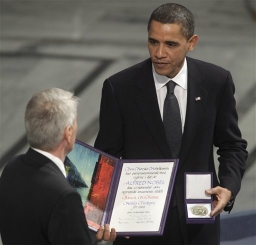
2009 – President Barack Obama won the Nobel Peace Prize “for his extraordinary efforts to strengthen international diplomacy and cooperation between peoples.”
Compiled by Ray Lemire ©2018 RayLemire.com / Streamingoldies.com. All Rights Reserved.